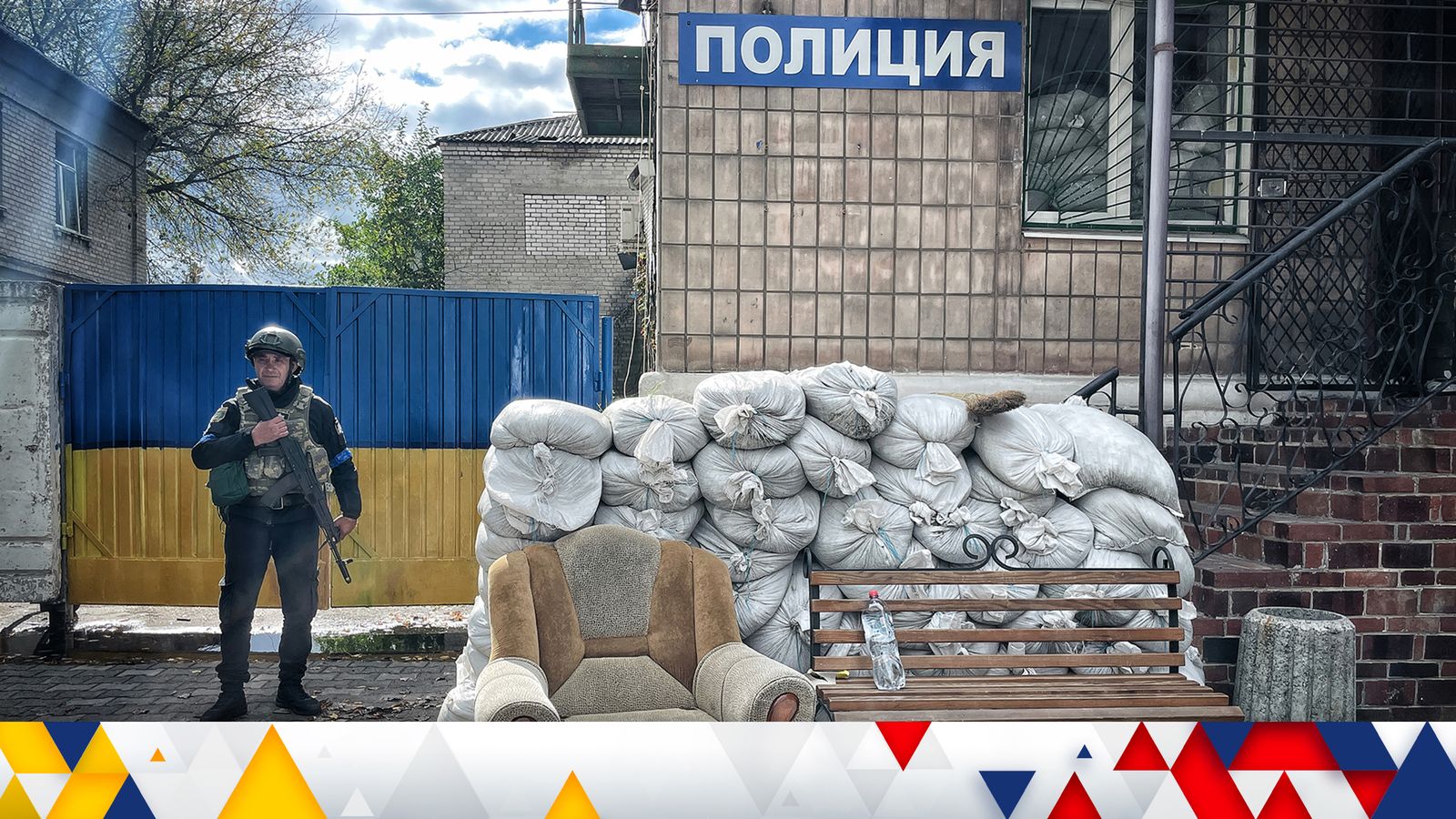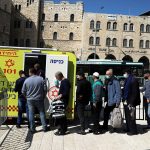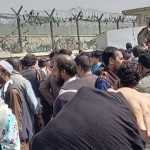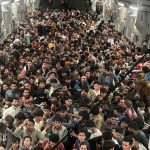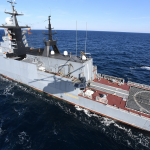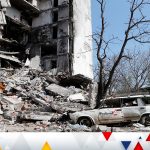Success on the battlefield translates into a very different language for the residents of Lyman – and has come at a significant cost to the civilians.
The eastern Donetsk town is a husk of its former self, pummelled to bits with the heart ripped out of it and the few residents still there living beneath ground “like moles”, one told us.
“We don’t care who’s in control here,” one woman told us. “It could be the devil. We just want them to stop shooting.”
Maps posted four hours apart show how rapidly Putin’s troops are losing land – Ukraine latest
We saw the corpses of Russian soldiers strewn on the road into Lyman, their burnt-out and wrecked vehicles beside them.
Their bodies were bloated and their faces wax-yellow in colour, with personal bags spewing their contents all around them.
“Careful”, one of my colleagues cautioned to our team, “there are mines everywhere”.
Reports of a ‘nuclear train’ heading to Ukraine should be treated with caution
Nuclear strike could become more appealing for Putin as options shrink
Ukraine war: Czechs donate £1.1m to buy Soviet-era tank to help fight against Russia invasion
Sure enough, hidden amongst the soldiers’ belongings and half-covered with leaves and dirt were several mines along the road.
The Russians had wanted to kill as they beat a retreat in the face of the Ukrainian army.
Please use Chrome browser for a more accessible video player
The recapture of Lyman is a significant victory because it was used by the Russians as a key transport hub – the railway lines used to take supplies and ammunition to their units in Donetsk and Luhansk, the two regions which make up the Donbas.
The severing of this vital supply link is likely to impact not only the Russians’ ability to maintain defences on the eastern front but potentially their plans to move forward. At least, that appears to be the Ukrainian intention.
The recapture has certainly placed them in a good military position on the eastern front and the soldiers are clearly buoyed by these successes.
“In Mariupol, the battle was the biggest,” Roman tells us in halting but clear English.
But here, in Lyman? I ask.
“Here the Russians go away,” he replies, smiling.
“Here they do a little shoot and go away.” There’s another telling smile from him.
This has been no Mariupol.
Lyman was significantly empty of much Ukrainian military whilst we were in the town, days after it had been seized by the Ukrainians.
This seemed to indicate they’d secured it and already moved forward to try to recapture more villages and towns inside the Donbas.
Lyman is only about 10 miles from the border of neighbouring Luhansk and several soldiers we’ve spoken to are already confidently predicting the reclaiming of further substantial territory there.
But for those left in the wake of these military manoeuvres, the fight to survive has become no less harsh.
We found men trying to cut down trees in the grounds of the hospital. They were gathering wood to burn. The town has had no electricity for months and winter is fast approaching.
The hospital building had been holed in several places. We could see stretchers and medical paraphernalia including babies’ cots through the broken windows.
It’s difficult to work out, given that the Russians were holding Lyman for many months, who mounted the attack on the medical facility.
Was it done in the initial capture of the town or during the shelling to try to dislodge the Russian troops?
That will surely form part of an investigation into just what happened here, given attacking a hospital is against international law and a potential war crime.
There are anxious glances from the men cutting wood as an army fuel truck rumbles by. They can see the Russian ‘Z’ symbol – but it’s been painted over with a less distinct Ukrainian cross.
“War over land,” one of them men mutters to us, “but we’ve got nothing to heat our houses… no electricity… nothing.”
The men – like many here – don’t want to be filmed.
“You ask us about referendums,” one woman remonstrates. “We don’t want to talk politics. We want to stop living in shelters. Even dogs have better lives than us right now.”
Natalia takes us down the stairs into a cold, dark concrete shelter where they’ve piled up stocks of wood to do underground cooking and to try to keep warm during the winter.
They don’t seem to believe life is likely to change much for them in the immediate future.
The town might have been recaptured but there’s a deep reluctance to take any chances and a great sense of doubt over whether the fighting is truly over here.
“There are no jobs, no pensions, nothing… no salaries,” Natalia says to us.
“We have nothing… our children have no salaries and no jobs… can you call this a life?” Her voice cracks and she sobs. “I can’t do this any more,” she says.
Lyman’s police station still has its signage in Russian but there’s a pot of paint and paintbrushes near the gate which show it’s been freshly remodelled with the blue and yellow of the Ukrainian flag.
A policeman shows us the picture of the Russian flag which was on the same gate just a few days earlier. Flags and allegiances are all-important here.
Another policeman from Lyman arrives at the group of civilians we’re with – to let them know he’s back in town and will work on trying to reconnect the badly-needed utilities.
“We just need electricity,” several residents say to him, talking over each other at this rare sight of someone in authority.
“It’s just our second day here,” the policeman, Dmytro, tells them. “We can’t fix everything at once.”
But he reassures them: “We know you need it. We are trying.”
Seventy-five-year-old Zina stops cycling to talk to us. Like so many here, she’s endured a lot but with nowhere to go, there’s been little option for her.
“Who wants this war?” she says. “No one wants it… everyone is leaving, everyone has run away… the city is empty.”
And it’s not just Lyman. The surrounding villages and communities around the city have been battered almost beyond recognition.
The roads around the Kharkiv region – where the Ukrainians executed a lightning rout of Russian troops, allowing them to grab back Izyum and move onto Lyman – are littered with rusting carcasses of military vehicles.
The surrounding communities are also mostly empty and much of them, piles of rubble. Victory is bittersweet in Ukraine.
Alex Crawford reports with cameraman Jake Britton and producers Chris Cunningham and Artem Lysak.
